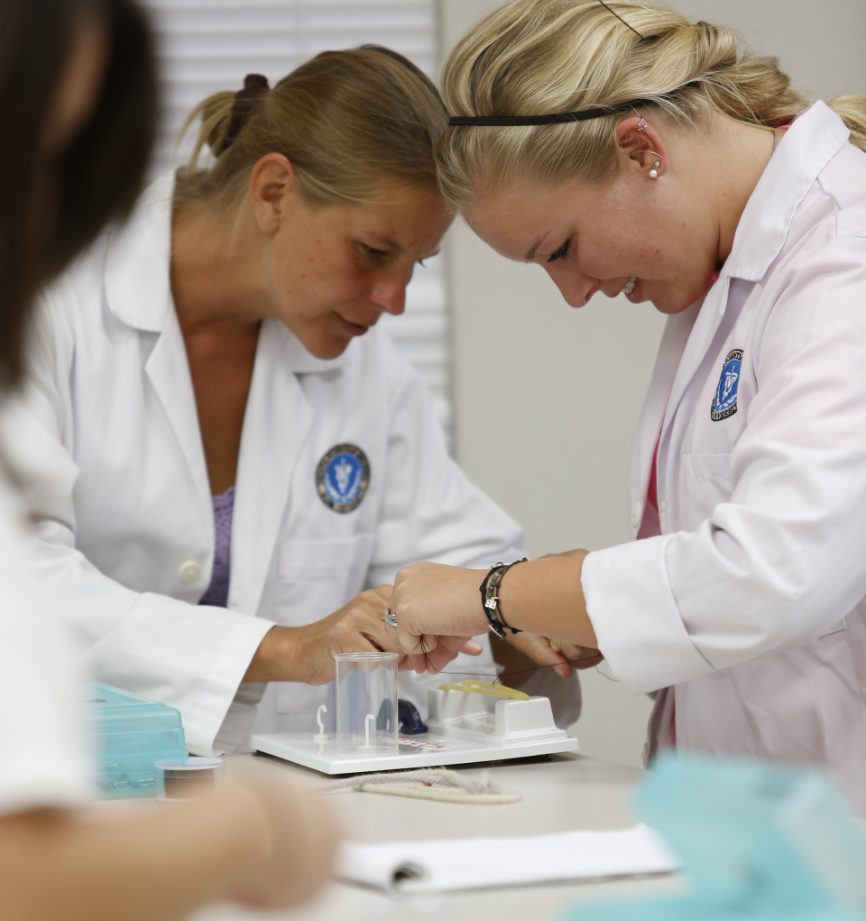Graduate Programs
Turn your passion for science into impact. At Ross Vet, our research programs empower you to drive discoveries that advance animal, human, and environmental health—and create solutions to real-world challenges on a global scale.
The window to submit your application ends in…
DAYS
HOURS
MINUTES
SECONDS
Apply Now to start earning your DVM in January!
GRADUATE PROGRAMS
Turn your passion for science into impact. At Ross Vet, our research programs empower you to drive discoveries that advance animal, human, and environmental health—and create solutions to real-world challenges on a global scale.
GRADUATE PROGRAMS
Research opportunities in food safety, zoonotic diseases, reproduction and genetic disorders, conservation medicine, and more. Four research centers, faculty to master research methods and contribute to projects that make a global impact.
OUR GRADUATE PROGRAMS INCLUDE:
- Graduate Certificate in One Health
- Master of Science (MSc) in One Health
- Master of Science (MSc) by Research
- Doctor of Philosophy (PhD) by Research
START DATES
January 5, 2026
May 4, 2026
September 7, 2026
.png?v=07072022014521)
ONE HEALTH PROGRAMS
These 100% online, interdisciplinary programs explore the vital connections between human, animal, and environmental health. Designed for those interested advancing the principles of One Health, the curriculum covers topics such as epidemiology, food safety, zoonotic diseases, environmental health, and more.
MASTER OF SCIEND (MSc) BY COURSEWORK IN ONE HEALTH
By completing online coursework, followed by a capstone research project, you’ll have an opportunity to put One Health concepts into real-world practice. Study up to three years part-time with this flexible program and participate in an optional one-week residency on Ross Vet’s St. Kitts campus.
Graduate Certificate in One Health
Pursue the 13-credit Certificate in One Health on your own timeline, with up to three years to complete. Customize your coursework, from public policy and law to food animal safety, to match your career goals. All earned credits can be applied toward the MSc in One Health degree.
Research-Based Graduate Degree Programs
Advance your education by engaging in original research under the mentorship of experienced faculty. Learn how to conduct research, gather results, and present your findings to your peers with our master’s or PhD by research programs.
MASTER OF SCIENCE (MSc) BY RESEARCH
This program can be completed as a dual degree alongside your DVM in as little as one extra semester (11 semesters total) or a standalone MSc (one year full-time or two years part-time).
DOCTOR OF PHILOSOPHY (PhD) BY RESEARCH
For those aiming to make significant contributions to veterinary science and open doors to global collaboration, our PhD program the way to give yourself an edge. This program can be completed in three years full-time or six years part-time.

GRADUATE
Our graduate programs are designed for professionals in public health, veterinary and human medicine, environmental and conservation health, biomedical sciences, research, and education. By providing cutting-edge, graduate-level training, Ross Vet equips students with the skills and knowledge needed to pursue impactful careers.
At Ross Vet, graduate students engage in research across diverse areas, including food safety, zoonotic and vector-borne diseases, reproduction and genetics, conservation medicine, and ecosystem health. Our four specialized research centers provide focused mentorship and hands-on experience guided by expert faculty.
Located on the tropical island of St. Kitts, Ross Vet offers a distinctive environment for studying marine and wildlife ecosystems—from sea turtles and invasive species to tropical disease prevention and public health. For added flexibility, students may also conduct research remotely under the guidance of a dedicated faculty advisor.
The DVM/MSc dual-degree program enables students to build on the research foundations of the DVM curriculum, gaining advanced experience and pursuing specialized research interests.
Students have two options for completing their DVM/MSc degree:
- Intercalated Option (13 semesters): Students will fully immerse themselves in research for three semesters, including training and preparation for their thesis project. These three semesters occur in the middle of our pre-clinical DVM curriculum in St. Kitts.
.jpg?v=11192025140900)
- Integrated Option (11 semesters): This intensive program allows students to complete both their DVM and MSc in just one semester more than traditional DVM students. Research training and preparation for the research project thesis are fully integrated into semesters 1-3 before dedicating a full semester to research.

One Health is a collaborative approach that links human, animal, and environmental health to address global challenges. By uniting veterinarians, doctors, conservationists, and policymakers, this approach tackles issues like zoonotic diseases, food safety, species extinction, and habitat loss, with support from organizations such as WHO, CDC, and the FDA.
DOES ROSS VET REQUIRE THE GRE?
DOES ROSS VET REQUIRE THE GRE?
The GRE is not required to apply to Ross Vet. However, applications that include the GRE, regardless of GRE score, will be given priority in the review process. At Ross Vet, we know there is more to your story than GPA and GRE, and that’s why we take into account each applicant’s unique attributes and experiences in addition to important academic elements, such as grade trends over time. Our holistic review process helps ensure every applicant is thoroughly evaluated as an individual and has an opportunity for a fair shot at gaining admission to the DVM program.. Please visit our website for the most up-to-date information regarding GRE.
Will I still be able to use Grad PLUS loans after July 1, 2026?
Will I still be able to use Grad PLUS loans after July 1, 2026?
The new legislation eliminates the Grad PLUS loan program for graduate and professional students, including those in veterinary medicine. Future borrowing will be limited to Direct Unsubsidized Loans, which have lower annual and aggregate limits.
How will these changes affect current veterinary students?
Students who have taken out loans before July 1, 2026, are generally exempt from the new borrowing limits for up to three academic years or until they complete their program, whichever comes first.
What are the new borrowing limits for veterinary students starting after July 1, 2026?
What are the new borrowing limits for veterinary students starting after July 1, 2026?
Starting July 1, 2026, veterinary students will face new borrowing limits on federal student loans. They will be able to borrow up to $50,000 annually through Direct Unsubsidized Loans. Over the entire course of their veterinary education, the aggregate borrowing limit will be capped at $200,000. Additionally, there is a lifetime borrowing limit of $257,500 that applies to all federal student loans combined.
What if my veterinary school’s cost of attendance exceeds these limits?
If your total cost of attendance is higher than the federal loan limits, you may need to look into other ways to cover the difference, such as private loans. Our Office of Student Finance is here to help. Email [email protected] to discuss your options and create a plan that fits your financial situation.
REQUIREMENTS
You need a bachelor’s degree (or international equivalent) in biological, biomedical, environmental, or ecological sciences, or a professional veterinary or medical qualification.
A high level of English proficiency is required, and applicants whose native language is not English will be asked to provide evidence of proficiency.

"I feel like it (the dual degree) was great because it also gave me the opportunity to speak at conferences, to meet new people, to connect, to build that relationship with faculty."
Rebecca Zayas, DVM/MSc by Research '25


P.O Box 334 Basseterre St. Kitts West Indies | Phone: +1-869-465-4161 | Admissions (US toll free): 855-ROSS-Vet
Admissions (international): +1-732-509-3042 | Fax: +1-869-465-1203 | [email protected] | Privacy Statement
Academic Catalog | Student Handbook
*Ross University School of Veterinary Medicine confers a Doctor of Veterinary Medicine (DVM) degree, which is accredited by the American Veterinary Medical Association Council on Education (AVMA COE), 1931 N. Meacham Road, Suite 100, Schaumburg, IL 60173, Tel: 800.248.2862. For more information please visit https://www.avma.org/.
*Not available to residents of Alabama
MSc One Health and Graduate Certificate in One Health program availability varies by location.
The AVMA COE uses defined standards to evaluate veterinary medical education programs, including facilities, clinical resources, curriculum, faculty, student outcomes and research programs. The standards are interpreted and applied by the AVMA COE-accredited veterinary medical education programs in relation to its mission.
©2026 Ross University School of Veterinary Medicine. All rights reserved.
